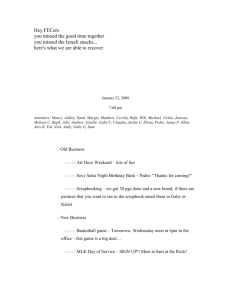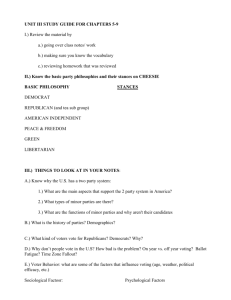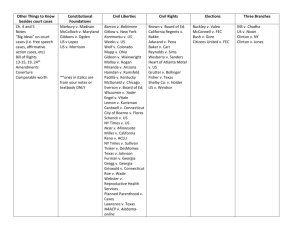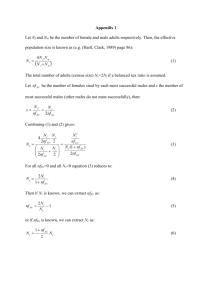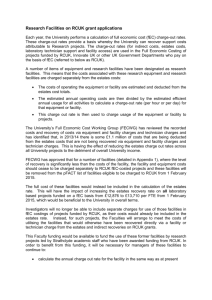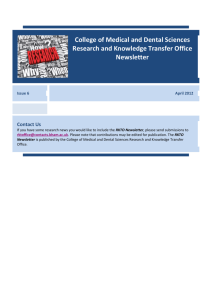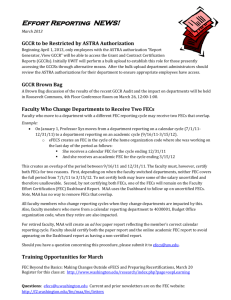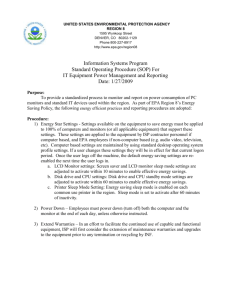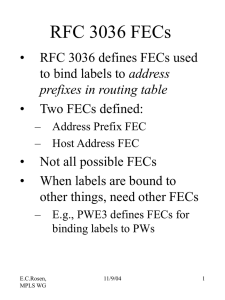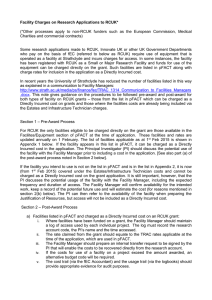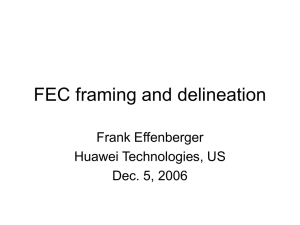RKTO Newsletter September 2012
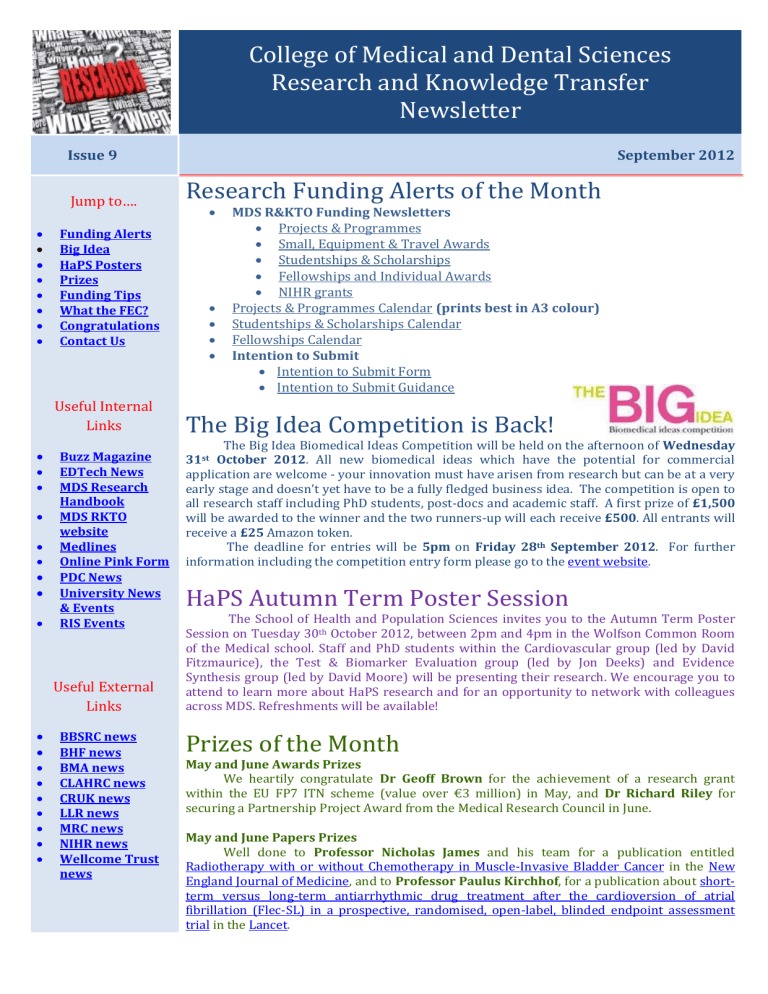
College of Medical and Dental Sciences
Research and Knowledge Transfer
Newsletter
Issue 9
Jump to….
Useful Internal
Links
Buzz Magazine
EDTech News
MDS Research
Handbook
MDS RKTO website
Medlines
Online Pink Form
PDC News
University News
& Events
RIS Events
Useful External
Links
BBSRC news
BHF news
BMA news
CLAHRC news
CRUK news
LLR news
MRC news
NIHR news
Wellcome Trust
news
September 2012
Research Funding Alerts of the Month
MDS R&KTO Funding Newsletters
Projects & Programmes
Small, Equipment & Travel Awards
Studentships & Scholarships
Fellowships and Individual Awards
NIHR grants
Projects & Programmes Calendar (prints best in A3 colour)
Studentships & Scholarships Calendar
Fellowships Calendar
Intention to Submit
Intention to Submit Form
Intention to Submit Guidance
The Big Idea Competition is Back!
The Big Idea Biomedical Ideas Competition will be held on the afternoon of Wednesday
31 st October 2012. All new biomedical ideas which have the potential for commercial application are welcome - your innovation must have arisen from research but can be at a very early stage and doesn’t yet have to be a fully fledged business idea. The competition is open to all research staff including PhD students, post-docs and academic staff. A first prize of £1,500 will be awarded to the winner and the two runners-up will each receive £500. All entrants will receive a £25 Amazon token.
The deadline for entries will be 5pm on Friday 28 th September 2012. For further information including the competition entry form please go to the event website .
HaPS Autumn Term Poster Session
The School of Health and Population Sciences invites you to the Autumn Term Poster
Session on Tuesday 30 th October 2012, between 2pm and 4pm in the Wolfson Common Room of the Medical school. Staff and PhD students within the Cardiovascular group (led by David
Fitzmaurice), the Test & Biomarker Evaluation group (led by Jon Deeks) and Evidence
Synthesis group (led by David Moore) will be presenting their research. We encourage you to attend to learn more about HaPS research and for an opportunity to network with colleagues across MDS. Refreshments will be available!
Prizes of the Month
May and June Awards Prizes
We heartily congratulate Dr Geoff Brown for the achievement of a research grant within the EU FP7 ITN scheme (value over €3 million) in May, and Dr Richard Riley for securing a Partnership Project Award from the Medical Research Council in June.
May and June Papers Prizes
Well done to Professor Nicholas James and his team for a publication entitled
Radiotherapy with or without Chemotherapy in Muscle-Invasive Bladder Cancer in the New
England Journal of Medicine , and to Professor Paulus Kirchhof, for a publication about shortterm versus long-term antiarrhythmic drug treatment after the cardioversion of atrial fibrillation (Flec-SL) in a prospective, randomised, open-label, blinded endpoint assessment trial in the Lancet .
Look out for the new
RKTO Workshop
Series!
The subject of our next
RKTO Seminar at 1pm on
Monday 8 th October in the
Leonard Deacon
Lecture Theatre will be:
‘Writing for
Publication’
Speakers include:
Dr David Thickett and
Professor Jayne
Franklyn
Contact Us
If you would like to unsubscribe to this newsletter or if you have some research news you would like to include please contact rktoffice@contacts.b
ham.ac.uk
Please note that contributions may be edited for publication.
The RKTO Newsletter is published by the
College of Medical and
Dental Sciences
Research and
Knowledge Transfer
Office.
Wellcome news
Dr Ben Willcox has become the first researcher in the University of Birmingham to be awarded a Wellcome Trust Investigator Award (worth almost £1.5million) to explore “the molecular basis of gamma delta T cell recognition in health and disease”.
Research Funding Hints, Tips & Tricks
What’s the difference between your Impact Summary and Pathways to Impact
statement? Anybody can rattle off a woolly assertion that your study proposal could lead to amazing new insight (or perhaps even new treatments), so you’ll need to be more specific...
Your Impact Summary should clearly define who the (potential) beneficiaries are (other academics, business, clinicians, the general public...) and how they will benefit (commercial application, policy changes, health improvements...). The Pathways to Impact statement sets out what you are personally going to do during and beyond the lifetime of your grant to ensure these advantages are realised (how you will communicate, collaborate, train and further explore opportunities with the beneficiaries), and how you can monitor success.
What a lot of researchers miss is the fact that you can ask for money to deliver the
Pathways to Impact activities – RCUK actually expects that up to 5% of the total budget will be spent on these elements. And recognising their costs will actually make your plans look more realistic and achievable. Excellent and exciting science will remain fundamental to RCUK proposal decisions for the foreseeable future, but your Impact Summary and Pathways to
Impact statement are increasingly important too.... For more information and guidance check out the RCUK website .
Warning Label: What the FEC?
You may have noticed how much more expensive are RCUK submissions with overheads than charity proposals without these costs. The overheads addition is often assumed to be a lucrative money-grabbing scheme by the University, but there IS another side to the story: in
2011 research activities in our College alone made a loss of £23.4m, even AFTER we received support funding of £4.4m to compensate for low charity overheads. This is because our
research income only covered 74% of its actual costs.
The concept of ‘full Economic Costing’ (fEC) was developed after government reviews between 1997 and 2004 showed the financial unsustainability of staff time, estates, infrastructure and various other costs of academic research... The Government agreed that funding should be costed on a more realistic basis – fEC. Most people are aware that Research
Councils (and NIHR on grants awarded directly to universities) pay 80% of fEC, but this concept is frequently misunderstood. fEC grants are not more expensive than charity grants: charity grants require extra subsidy by the University to recover overheads. Even at 80% fEC on some of the best grant schemes, the University subsidises 20% of your direct costs for staff and consumables, and these often exceed any overheads received. In fact, almost all our research awards cost us money, through the College and University staff that support you, the facilities that you work in and the bills they incur, and the time that you spend on the grant.
Ultimately, like any business the University cannot afford to keep sustaining such major losses. Please do bear in mind that by working with your Research Facilitator and the team in
Research Finance to cost your grant effectively without compromising your vision or the scope of what you can achieve, you can help to minimise further losses and future cuts. For those interested in finding out more, a recent review of fEC can be found at the RCUK website .
And Finally, Other Congratulations To...
Developing the Next Generation
Many of you may already know that our Technology Transfer Officer Mrs Claire
Fenlon will be taking maternity leave from November 2012, and we are now also delighted to congratulate our Senior Research Facilitator for the School of Health and Population Sciences
Dr Helen McAteer on the expectation of a baby in February 2012!
Onwards and Upwards in Governance
Never a dull moment in the RKT Office and for the next six months our Senior Research
Facilitator for the School of Cancer Sciences Dr Clark Crawford will also be progressing to pastures new on three days per week (Tuesdays, Thursday and Fridays) in support of the
University Governance Office.
